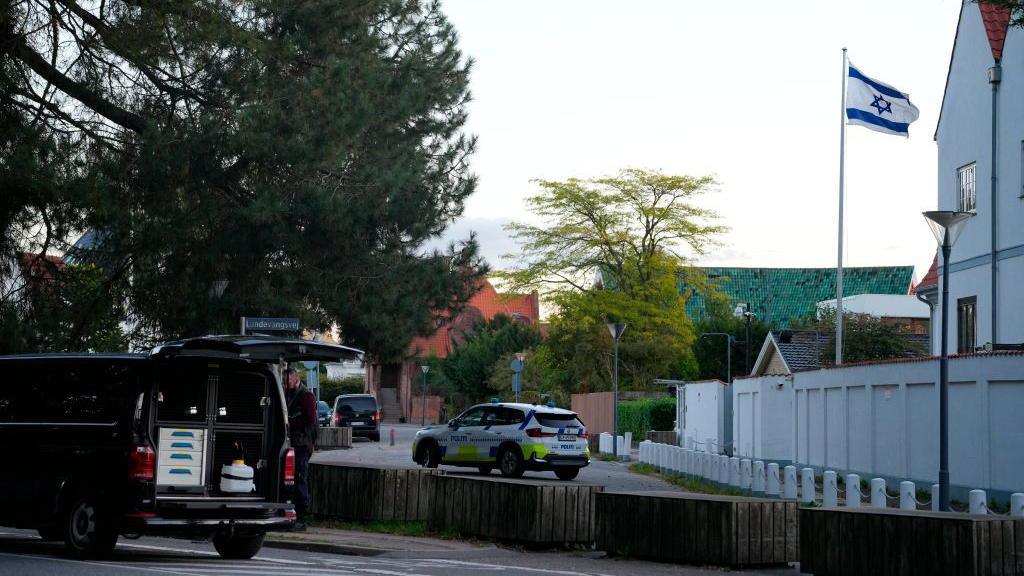Iran may be behind attacks on Israeli embassies, Sweden says

Police officers secured an area near the Israeli embassy in Copenhagen
- Published
Sweden's security service Sapo has said that Iran may have been involved in the explosions and gunfire that took place near the Israeli embassies in Stockholm and Copenhagen earlier this week.
Fredrik Hallstrom of Sapo said that choice of targets and methods pointed in the direction of Iran, but added this was an “assumption rather than pure knowledge”.
On Monday evening, shots were fired at the Israeli embassy in Stockholm. Nobody was injured.
Two explosions were then reported near the Israeli embassy in central Copenhagen in the early hours of Wednesday.
Two Swedish teenagers aged 16 and 19 were arrested at the Copenhagen train station later that afternoon. One of them had reportedly bought tickets to Amsterdam.
On Thursday, the two were charged with possessing hand grenades and denotating them near the embassy.
They have pleaded not guilty and have been remanded in custody until 30 October. A third Swedish national who was arrested near the embassy was later released.
Danish police have not confirmed whether the Israeli embassy was the target of the explosions. There are other embassies close to the road junction were the blasts were heard.
This is not the first time that incidents of this kind take place near Israeli embassies in a Nordic capital.
In January, a "dangerous object" was found outside the Israeli embassy in Stockholm and destroyed in what the Israeli ambassador called an "attempted attack".
At the time, Swedish Prime Minister Ulf Kristersson said the situation was "very serious" and promised to tighten the surveillance of the embassy and of Jewish institutions.
And in May, gunshots were heard around the same embassy. A number of teenagers were investigated in connection with the shooting, although several were later released.
After that incident, Sapo warned that the Iranian government was recruiting Swedish gang members to carry out violent acts against other groups and individuals in Sweden.
Last month, Sapo also accused Iranian intelligence of hacking into a text messaging service to send 15,000 messages to Swedes aimed at creating divisions in society and painting Sweden as an Islamophobic country.
The messages were sent around the time that Swedish anti-Islam activists set fire to copies of the Islamic holy book.
Iran's embassy in Stockholm rejected the accusations, calling them "baseless" and harmful to the two countries' relations.